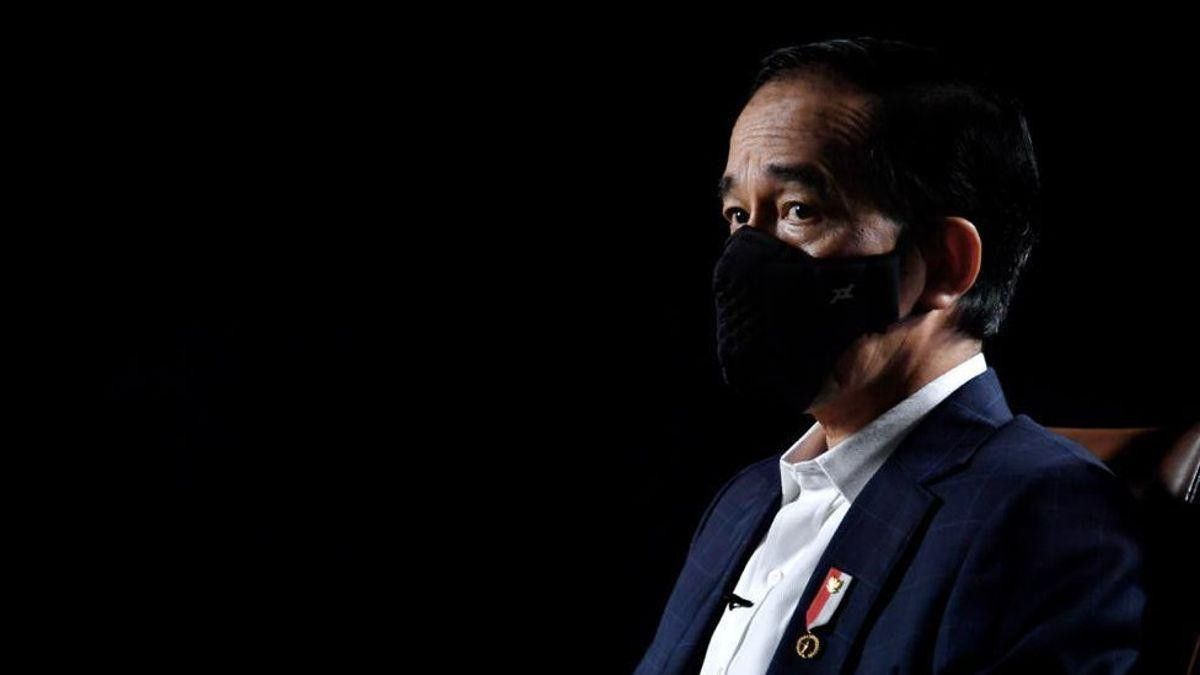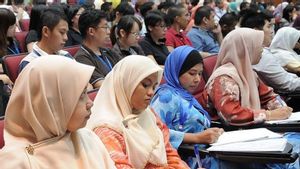JAKARTA - Professor at the National University of Singapore, Kishore Mahbubani called President Joko Widodo (Jokowi) a genius leader. According to him, almost no one outside the archipelago knows this story. Including the Indonesian people themselves, many of whom have recently felt that their satisfaction with Jokowi's performance has decreased.
"At a time when several rich democracies choose fraudsters as their political leaders, the success of Indonesian President Joko Widodo deserves wider recognition and appreciation. Jokowi provides a model of good governance and should be studied by the whole world," wrote Mahbubani opening his article published by Project Syndicate. .
Through his writing entitled "The Genius of Jokowi," Mahbubani said that Indonesia should be grateful for giving birth to the most effective democratically elected leader in the world today. The story is even more brilliant because Jokowi managed to manage one of the most difficult countries to govern in the world.
Jokowi, said Mahbubani, has done more than govern competently. He has set the standard of a new government that should be the envy of other major democracies.
Mahbubani started his argument by saying that Jokowi had succeeded in bridging Indonesia's political gap. He compared Jokowi's success to that of Joe Biden in the 2020 US Presidential Election, which still has not been able to overcome divisions.

"Biden served as a US senator for 36 years, but he was unable to heal the US partisan divisions. On the other hand, the presidential and vice presidential candidates that Jokowi defeated in his 2019 re-election -- Prabowo Subianto and Sandiaga Uno -- are now serving in his cabinet," wrote Mahbubani.
Then Mahbubani discussed how Jokowi reversed the growth momentum of Islamist parties in Indonesia in part by being inclusive. He compared Brazilian President Jair Bolsonaro to deepening divisions in his country.
Mahbubani said Jokowi had set a new standard in Indonesian governance. This, according to him, makes other democracies envious. "He has set the standard of a new government that should be the envy of other major democracies," Mahbubani said.
But unfortunately, according to Mahbubani, this good news is almost unknown to people outside the archipelago. Likewise domestically, the Indonesian people seem to be ungrateful. This can be seen from the survey on the level of satisfaction with the government, which has a downward trend.
Not satisfiedThe declining level of satisfaction with President Jokowi's performance was recorded in the Political Indicators survey. The survey on public perception was held on September 17-21 last month.
Indeed, according to the Executive Director of Political Indicators Burhanuddin Muhtadi, the level of satisfaction with Jokowi's performance is still above 50 percent, namely 58.1 percent. But the trend is that the satisfaction rate has decreased compared to the survey before the COVID-19 pandemic.
"If you look at the trend, there is a decrease in President Jokowi's satisfaction, when the survey was conducted under conditions of PPKM implementation. There is an impact of PPKM on the decrease in satisfaction with the President's performance," said Burhanuddin.
In the September 2019 survey, the level of satisfaction with Jokowi's performance reached 72 percent. After that this satisfaction trend decreased.
Satisfaction with Jokowi's performance as of February 2020 decreased to 70 percent, as of May 2020 by 66 percent, as of February 2021 it fell again to 63 percent, and as of July to 59 percent. Burhanuddin considered that the decrease in satisfaction with Jokowi's performance occurred because the economic condition of the community had declined due to the COVID-19 pandemic.

"This downward trend occurs because many people have lost their jobs. There has been a decline in people's purchasing power," said Burhanuddin.
In addition to the level of satisfaction with the government's performance, recently the issue of President Jokowi being anti-critic is also blowing hard. In addition, the Indonesian Democracy Index has decreased. This seems to contradict the praise given by Professor Mahbubani about Jokowi as the most effective president in the world, especially in a democratic country.
Democracy is decliningThe Economist Intelligence Unit (EIU) which measures the implementation of the democratic performance of countries in the world in 2020 shows that the Indonesian Democracy Index score has decreased. The Indonesian Democracy Index is ranked 64th in the world out of 167 countries with a score of 6.3.
Even though Indonesia's ranking is still the same as the previous year, the score has decreased from the previous number of 6.48. Indonesia's ranking in the Southeast Asia region is in fourth place, behind Malaysia, Timor Leste and the Philippines.
The atmosphere of Indonesia's democracy seems to be getting thinner as many parties think that in the Jokowi era freedom of expression is increasingly being confined. This can be seen from the many legal cases that have ensnared the public because of their opinions.
One of the polemics that perceive Jokowi as "anti-criticism" is the mural criticism of Jokowi 404 Not Found. Then there is the issue of the Jokowi meme polemic, The King of Lip Service. And most recently, the polemic over the arrest of a chicken farmer who was arrested by the police for carrying a poster asking for help in front of Jokowi made the impression of the repressive apparatus in the Jokowi era.
Jokowi's perception of repression was validated by the Indonesian Political Indicator research published in October 2020. The study showed the high number of intolerance of the Jokowi-Ma'ruf Amin government in the freedom of expression of its citizens.
The survey shows that there are 57.7 percent of the public who agree that the apparatus is increasingly arbitrarily arresting citizens who voice political views that are different from the government. The survey was conducted on 1,200 respondents by telephone from September 24 to September 30, 2020.
"The public considers that Indonesia is increasingly undemocratic, the more afraid people are to express their opinions, the more difficult it is for citizens to demonstrate, and the apparatus is seen as more arbitrary, so that satisfaction with democratic performance is increasingly depressed," said Executive Director of Indonesian Political Indicators Burhanuddin Muhtadi.
*Read other information about JOKO WIDODO or read other interesting articles from Ramdan Febrian Arifin.
Other BERNASThe English, Chinese, Japanese, Arabic, and French versions are automatically generated by the AI. So there may still be inaccuracies in translating, please always see Indonesian as our main language. (system supported by DigitalSiber.id)









